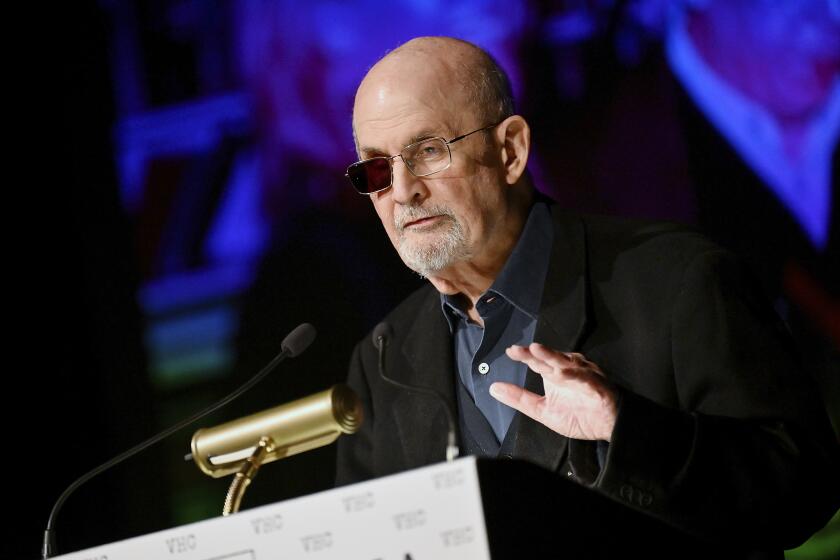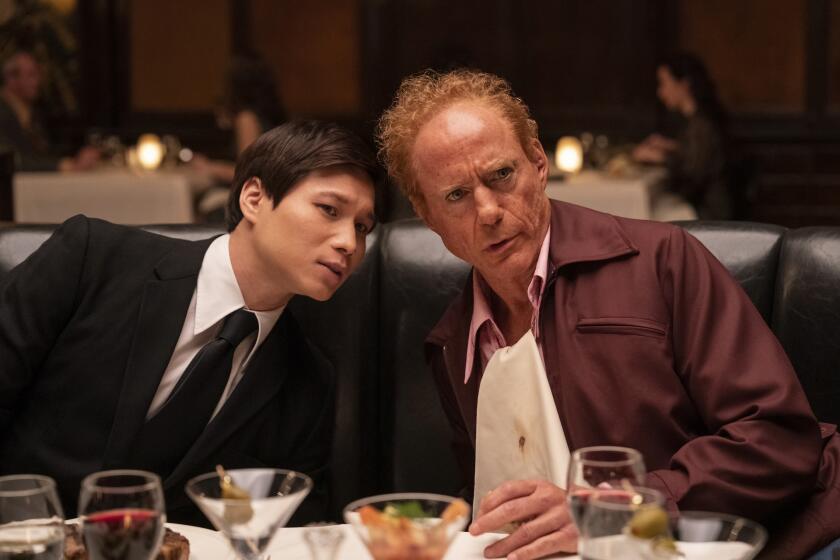Ready or not, that’s capitalism knocking
Since the days of Hawthorne, Melville and Poe, American authors have had a penchant for sweeping allegory, for tales that examine universal human qualities through the presentation of stylized and generalized characters. This tradition is carried on today by authors such as Cormac McCarthy in his novels “The Road” and “Blood Meridian,” Toni Morrison in “A Mercy” and National Book Critics Circle Award finalist M. Glenn Taylor in his novel “The Ballad of Trenchmouth Taggart.” And now by novelist Marc Fitten.
Fitten lived for several years in the Hungarian plains during that nation’s conversion from socialism to capitalism, witnessing societal convulsions and dislocations. His debut novel, “Valeria’s Last Stand,” set in the imaginary post-socialist-era Hungarian village of Zivatar, is an allegory which at first glance is a tale of love and lust but from a distance is clearly a symbolic rendering of the benefits and drawbacks of switching from a socialist to a market economy.
“Nothing was sacrosanct anymore,” reflects the 68-year-old title character early in the novel. “Ultimately, that was her problem with this new system. It bred contempt. The masses need the inviolable. Even Stalin knew that. The proper care and feeding of the masses requires and demands opiates! But the capitalists ran roughshod over everything. They left nothing untouched or undefiled.” Valeria is the village crone, a woman whose presence at the village market sends shivers up the spines of the sellers as she inspects their foods and wares for imperfections. She’s the old lady whom children taunt and who retaliates by throwing rocks at them. Her perpetual scowl is a source of derision and contempt, and no man in his right man approaches her for anything but her prize turnips. Until, that is, she and the village potter lock eyes at the market. The potter, who has been sleeping with the buxom tavern-keeper Ibolya, falls in love with Valeria, and she with him. They have an affair, which inspires the potter to give up his trade and become an artist rather than an artisan. He becomes a maker of fine pottery and sculptures.
--
Seeing the light
This transformation makes him think he “was godlike, and that was not hubris. In a single moment, the potter understood that he had reached a level in his craft where all the fear, anxiety, and depression in his life could be sublimated into art. He recognized this. The potter recognized that there was nothing better for a man to do -- to reflect his godlike image -- than create something lasting. Chastity is not God. Benevolence is not God. Honesty is not God. What is God, what is the crux and apex of man’s existence, is when he reaches deeply into himself, uses his hands, his mind, his blood, his imagination, and his semen, points to a formless void, the emptiness of his surroundings, and utters the same phrase that began the entire universe: Let there be light!”
The affair of Valeria and the nameless potter disturbs the careful social balance of the village, because Valeria for her entire adult life has been the designated outcast. She has betrayed her niche in the village, abandoned her position. The jilted, dumbfounded and furious Ibolya is determined to recapture her man and will do anything to get him back.
And when a wandering chimney sweep happens upon the village, he sees an opportunity to clean out more than Zivatar’s chimneys: It’s a chance to clean out their wallets. Women swoon over the tough little man, the roaming and adventurous capitalist, and it’s not long before he seduces Valeria, who’s now being ignored by the potter turned artist. The chimney sweep’s affair with Valeria sets off a chain of events that culminates in a harrowing and spectacular village brawl that signals the end of the old ways and the beginning of the new.
When Ibolya’s Nonstop Tavern, the symbol of the fast-changing present the villagers must deal with, closes, it “was as if their world had lost a little bit of color. They could all feel it. Even Valeria could feel it. Things were different already. And what was odd about the difference was that one couldn’t tell if it was better or worse. One couldn’t tell much of anything except that the world had changed and they would have to change with it.”
--
Worth attention
Last October, Horace Engdahl, permanent secretary of the Nobel Prize jury, said, “The U.S. is too isolated, too insular. They don’t translate enough and don’t really participate in the big dialogue of literature. . . . That ignorance is restraining.” Fitten, with his international experience and scope, his deep understanding of human qualities that transcend national origins and political agendas, seems to belie Engdahl’s generalization. As the U.S. struggles with its assessment of the relative merits of capitalism, “Valeria’s Last Stand” is a timely and necessary cultural contribution.
--
Williamson’s latest novel, “Welcome to Oakland,” will be published in July.
More to Read
Sign up for our Book Club newsletter
Get the latest news, events and more from the Los Angeles Times Book Club, and help us get L.A. reading and talking.
You may occasionally receive promotional content from the Los Angeles Times.






